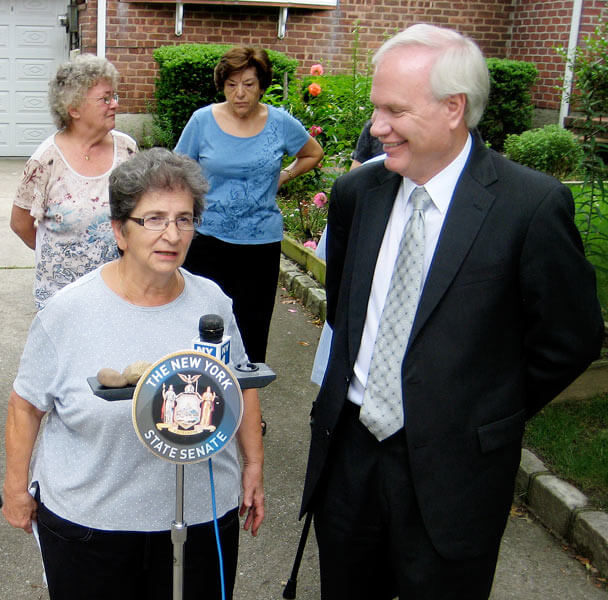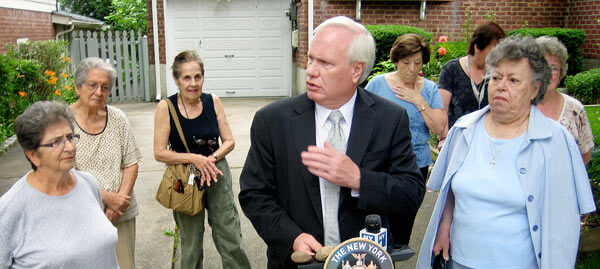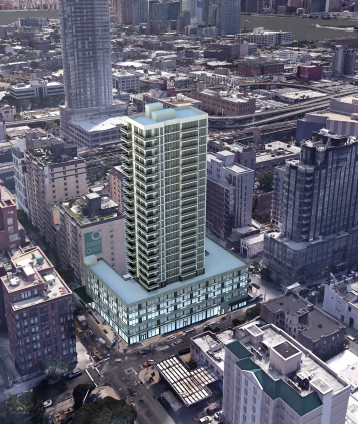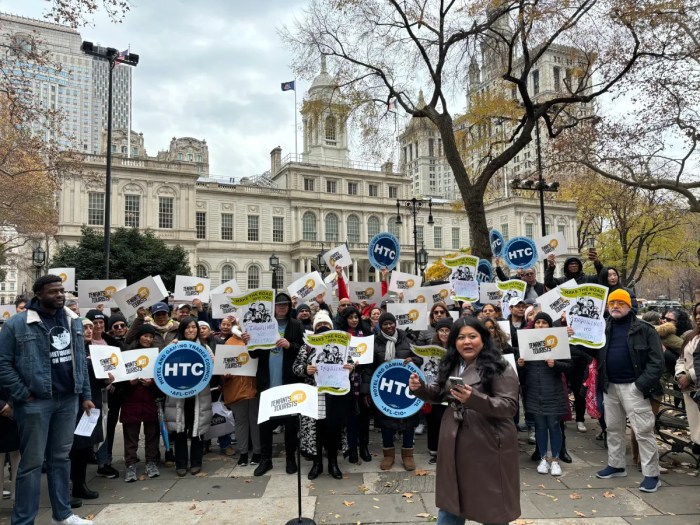By Phil Corso
Sidewalk cracks along Little Neck Parkway can be traced directly to the center of the busy street where they formed, but homeowners who live there were slapped with liens on their property for them, residents said.
Anna Stefanidis has lived along the bustling parkway for decades and said faulty street paving and uprooted trees have caused the sidewalk in front of her home to deteriorate.
But after an inspection, the city Department of Transportation put a non-monetary lien on her home, ultimately making the cracking pavement a personal priority to have fixed.
A DOT spokeswoman said property owners are responsible for repairing and maintaining the sidewalk adjoining their properties. If the city does repair a sidewalk, the spokeswoman said, the property owner will not be charged for work related to any uprooted city trees. Only then can the non-monetary lien be removed, she said.
The Little Neck native said cracks stemmed from poor pothole patchwork on the parkway, which left minor bumps in the road that become worse as cars drove over them.
“There are potholes that they come and repair, but when they repair them, the city does such a sloppy job that we can hear the bumps,” Stefanidis said as cars zoomed by. “We are all in our late 70s and 80s. What if something happens to us? Who is going to be affected? Our children!”
State Sen. Tony Avella (D-Bayside) joined with the residents who live along Little Neck Parkway — all of whom were given non-monetary liens after the city inspected their block for sidewalk cracks. The senator protested to the Transportation Department’s policies on behalf of the residents, saying they should not be punished for damages they were not responsible for.
“Placing a lien on a property, even if it is non-monetary, can cause serious issues, especially if the homeowner is trying to sell their property,” Avella said. “This obviously seems like an attempt by the city to skirt their own responsibilities and pressure homeowners into repairing the sidewalk, despite not being responsible for the damages.”
The senator said the liens could become a big problem if the homeowners decide to sell their property because they would have to pay out of pocket in escrow before closing to compensate the buyer for any potential repair costs.
“The city needs to change their policy so that residents are not penalized twice for receiving a sidewalk violation that the city, and not the homeowner, is responsible for,” he said.
Neighbor Hope Banakos said she could see the same kinds of damages across Little Neck Parkway that have gone without penalty and wondered why the city had chosen only her small strip of homes.
“I think it is very unfair when I leave my house and come back and have a registered letter saying I have a violation from the city,” Banakos said. “We are retired people. It is only my block. Nobody else in my neighborhood was touched.”
Susan Seinfeld, district manager at Community Board 11, said she had spoken with the homeowners along Little Neck Parkway who were feeling singled out by the city. She said city inspections were complaint-based and if it is found that city trees caused the cracks, it would not become the residents’ responsibility.
But it is the city that ultimately makes that call, she said.
Reach reporter Phil Corso by e-mail at pcorso@cnglocal.com or by phone at 718-260-4573.





































